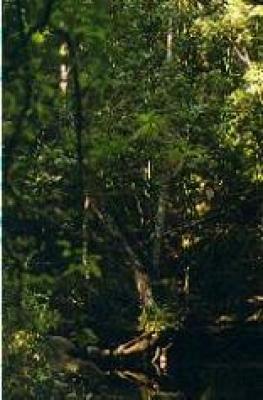The Amatola Trail starts at Maden Dam, approximately 23 km from King Williams Town, and ends 3 km from Hogsback.
The Amatolas are a deceptive range - hikers must fully immerse themselves in the dense yellowwood forests and spacious plateau, with the enormous specimens of indigenous trees, spectacular waterfalls, cool, clear bathing pools and rushing trout streams, to fully appreciate their beauty.
The trail is strenuous and requires a high level of fitness, although there are optional 'escape' routes along the way. Parking is available at Maden Dam, Dontsa, Cata and Zingcuka forest stations, with numerous exit and entrance link paths from the forest stations.
This means that the trail can be done in a series of shorter walks or weekend trails, and two loop trails (in the Pirie and Zingcuka forests) located at either end of the trail.
Route
The first day is a 15-km hike from Maden Dam to the overnight hut at Evelyn Valley. The second day leads for 22,5 km to Dontsa Forest, where there are stunning rock pools, and traditionally styled Xhosa rondavels. The third day's hike leads to Cata Forest, 19 km from Dontsa.
This is a strenuous climb to the plateau grassland with a steep descent to the Eseka Forest which lies below. The overnight huts here have basic amenities.
The fourth day is a 14,4 km climb to Mnyameni Valley and Geju Peak, where the overnight hut has a spectacular view. The fifth day's hike leads for 17,7 km along a contour path, with many pools along the way. It is approximately a 2-hour walk from the last pool to the overnight hut.
The final day of the trail leads from Zingcuka hut to the Tyume River, a 16,3-km walk. This last day passes a beautiful forest and an impressive waterfall.
The trail is open all year round, although the waterfalls and pools are best enjoyed in the summer months. Bushbuck, duiker, samango monkey, baboon, bushpig, giant golden mole, giant earthworm, Amatola toad and Hogsback frog are just some of the many creatures you may encounter along the way. The rich birdlife includes Cape parrot, Knysna lourie and a host of other species.
The Amatolas span an area rich in cultural history. Frontier pioneers were responsible for the many villages, mission stations, graveyards and churches nestling in the shadow of the escarpment.
The Xhosa used to graze their livestock here in spring and summer, as did the Hottentots before them.
Bookings
Department of Water Affairs and Forestry
Telephone +27 43 642 2571
Fax +27 43 604 5529
e-mail amatolhk@dwaf.gov.za
Pre- & Post-trail Accommodation
Accommodation options can be explored in both King Williams Town as well as Hogsback
